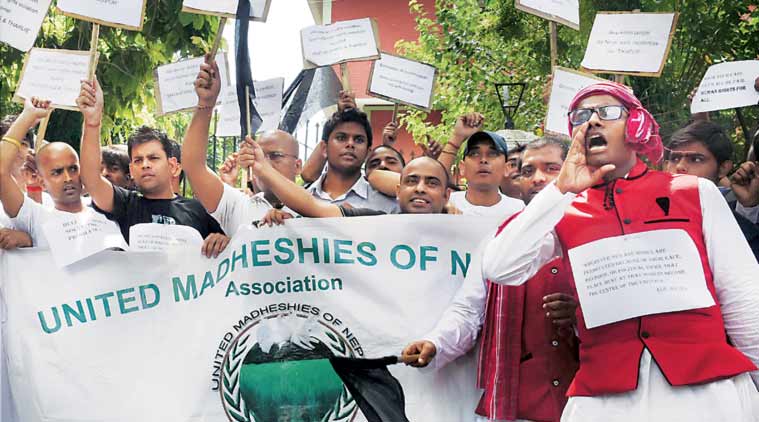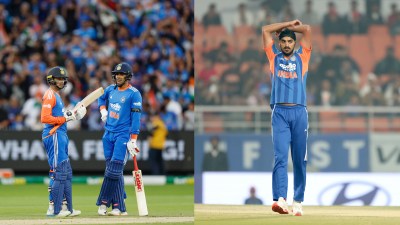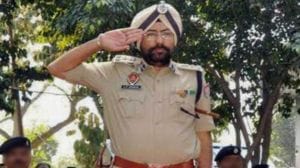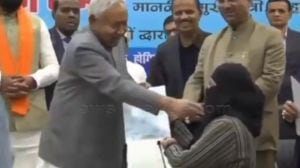Upset over Nepal’s newly promulgated Constitution, New Delhi wants Kathmandu to carry out “seven amendments” to ensure it is acceptable to the Madhesis and Janjatis, South Block sources told The Indian Express Tuesday. These amendments are at the heart of the protests and violence in Nepal which have left at least 40 dead.

These “amendments” have been conveyed to Nepal’s leadership by the Indian government through official channels — Ranjit Rae, India’s ambassador to Nepal, is in New Delhi for consultations — after South Block reviewed the new Constitution.
Watch Video
The proposed amendments are:
* Article 63 (3) of the Interim Constitution provided electoral constituencies based on population, geography and special characteristics, “and in the case of Madhes on the basis of percentage of population”. Under this provision, Madhes, with more than 50 per cent of the population, got 50 per cent of seats in Parliament. The latter phrase has been omitted in Article 84 of the new Constitution. “It needs to be re-inserted so that Madhes continues to have electoral constituencies in proportion to its population,” a government source told The Indian Express.
[related-post]
* In Article 21 of the Interim Constitution, it was mentioned that various groups would have “the right to participate in state structures on the basis of principles of proportional inclusion”. In the new Constitution (Article 42), the word “proportional” has been dropped — Delhi wants it re-inserted.
* Article 283 of the Constitution states that only citizens by descent will be entitled to hold the posts of President, Vice-President, Prime Minister, Chief Justice, Speaker of Parliament, Chairperson of National Assembly, Head of Province, Chief Minister, Speaker of Provincial Assembly and Chief of Security Bodies. This clause is seen as discriminatory for the large number of Madhesis who have acquired citizenship by birth or naturalisation. Delhi says this should be amended to include citizenship by birth or naturalisation.
Story continues below this ad
* Article 86 of the new Constitution states that National Assembly will comprise 8 members from each of 7 States and 3 nominated members. Madhesi parties want representation in National Assembly to be based on population of the Provinces. This, Delhi says, should be done to address concerns.
* Five disputed districts of Kanchanpur, Kailali, Sunsari, Jhapa and Morang: Based on the majority of the population, these districts or parts of them may be included in the neighbouring Madhes Provinces.
* Article 154 of the Interim Constitution provided for delineation of electoral constituencies every 10 years. This has been increased to 20 years in Article 281 of the new Constitution. Echoing the Madhesi parties, India wants this restored to 10 years.
* Article 11(6) states that a foreign woman married to a Nepali citizen may acquire naturalised citizenship of Nepal as provided for in a federal law. Madhesi parties want acquisition of naturalised citizenship to be automatic on application. This also finds favour with Delhi.
Story continues below this ad
Sources said that Prime Minister Narendra Modi called up counterpart Sushil Koirala on August 25. He appealed to the government, all political parties and the people of Nepal to eschew violence and maintain social harmony.
“During the August 25 phone call, the PM told Koirala that the political leadership of Nepal should resolve all outstanding issues through dialogue with all political parties and through the process of widest possible consultation, including with the public… to strengthen the climate of trust and confidence across and between all sections of society, and arrive at solutions that reflect the will and accommodate the aspirations of all citizens of a richly diverse society within a united, peaceful, stable and prosperous Nepal,” an official said, quoting from a statement of the Ministry of External Affairs.
In the last one month, New Delhi repeatedly asked Kathmandu — this included sending Foreign Secretary S Jaishankar as the PM’s envoy — to accommodate concerns being expressed by Madhesis and Tharus but that did not happen.
Former Indian ambassador to Nepal Jayant Prasad told The Indian Express Tuesday: “The situation seems quite difficult in Nepal. The triumvirate of the political parties should realise the enormity of the mistake committed by them. They, simply, will have to address the concerns of Madhesis and Janjatis.”
Editor’s note:
Story continues below this ad
MEA Spokesperson Vikas Swarup has reacted to the report: “The article is incorrect. Government of India has not handed over any list of specific Constitutional amendments or changes to the Government of Nepal. Without being prescriptive on specific clauses, and as already stated earlier, we continue to urge that issues on which there are differences should be resolved through dialogue in an atmosphere free from violence, and institutionalised in a manner that would enable broad-based ownership and acceptance.”
The reporter replies: The Indian Express has confirmed from its sources that these amendments/changes were communicated by New Delhi to Kathmandu. It stands by the report.

 Members of the United Madheshies of Nepal protest outside the Nepal embassy in New Delhi, Tuesday. (Source: PTI)
Members of the United Madheshies of Nepal protest outside the Nepal embassy in New Delhi, Tuesday. (Source: PTI)






























